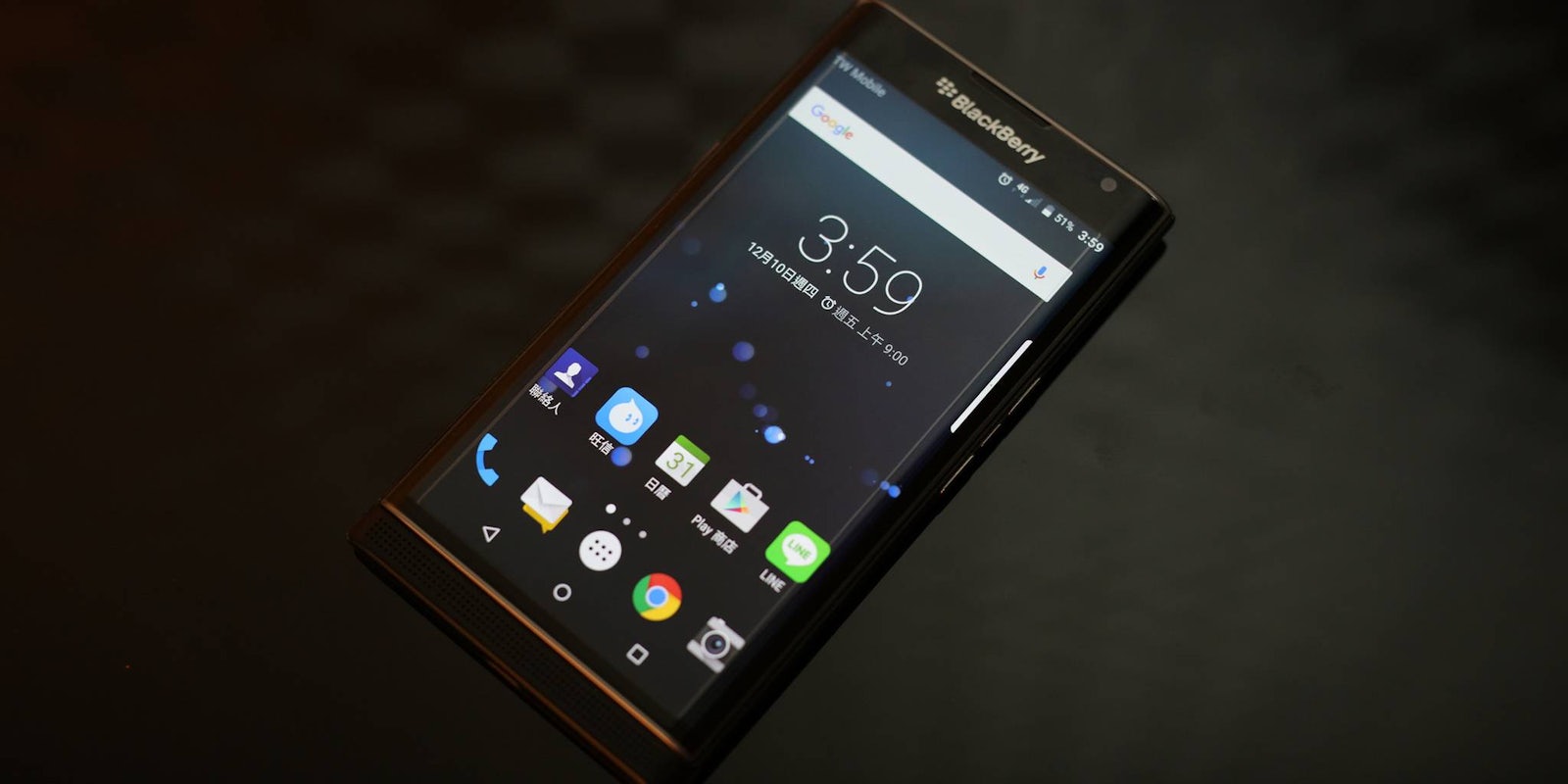You keep expectations low when you want to be able to exceed them. But when happens when you lower the bar and then still fail to clear it? Then you’re the BlackBerry Priv. According to an executive at AT&T, the latest handset from BlackBerry has struggled more than expected.
The reports comes from CNet, which cites an anonymous higher up from the second-largest mobile carrier in the United States who said the flagship smartphone from BlackBerry has produced “more returns than we would like.”
Released in November 2015, the Priv was BlackBerry’s first foray into Android. The Canadian phone manufacturer made the leap to the most popular mobile operating system after experiencing ongoing failure with devices powered by the company’s own software. Even its massive overhaul and launch of BlackBerry 10—a more familiar smartphone-style OS that offered multitasking, a virtual assistant, and other features—released in 2013.
The Priv sported a slide-out, physical keyboard—a rarity on smartphones but a signature feature of BlackBerry devices—and placed a heavy emphasis on privacy. That niche is still popular and has generated more interest as of late thanks to increased reports of malware, ransomware, and viruses, but the Priv has yet to find its spot next to the likes of Black Phone, the go-to option for super secure, Android-powered devices.
Despite building the Priv for Android—typically a platform that yields more affordable phones—BlackBerry kept its premium label when it came to the price tag. The device sold for $700 unlocked, which is more than an iPhone 6s.
Thanks in part to that high price, BlackBerry hasn’t been able to get the Priv in the hands of new consumers; the AT&T executive cited by CNet reported that most Priv users are BlackBerry loyalists. Despite their dedication the company, the switch in operating system proved too challenging for many, which led to a high return rate for the device.
BlackBerry doesn’t provide sales figures for individual devices, but it’s easy to imagine based on overall figures that the Priv has underwhelmed. The company missed Wall Street’s target of 850,000 handsets sold last quarter, managing just 600,000 in total.
Despite what would appear to most as abject failure, BlackBerry is pressing on with its Android strategy. In January of this year, company CEO John Chen said he expected to release one or two new Android devices. The details of those phones appear to have leaked in May. Only time will tell if they generate any excitement or become the latest in BlackBerry’s line of dust collectors and shelf space holders.
H/T CNet


